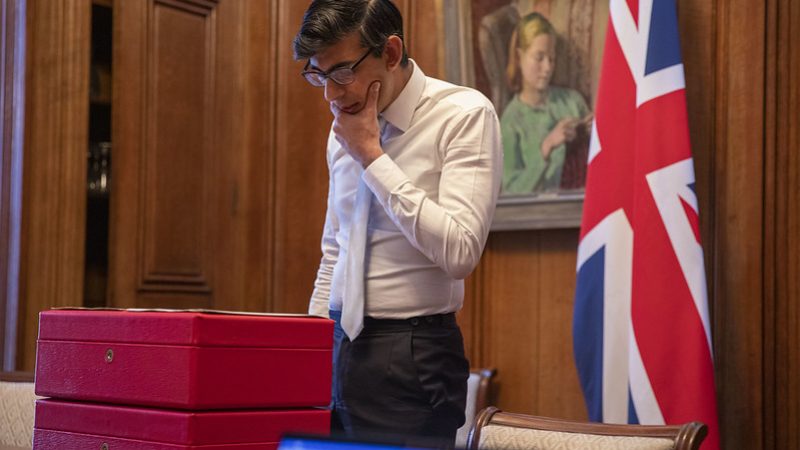
Rishi Sunak has been urged in a new report from trade unions and small business to provide greater security for self-employed workers or risk seeing an “exodus” from self-employment in the wake of the pandemic.
The inquiry into the future of self-employment, launched by trade unions Prospect and Community, published its paper today warning of the impact of Covid on the self-employed and urging the Chancellor to take action in the Budget next month.
The report, also backed by the Federation of Small Businesses, found that a majority of freelancers are currently unsure about continuing in their work and that many want a stronger safety net for self-employed workers.
It offers recommendations for the better protection of self-employed people, both in terms of immediate support to be given in the ongoing pandemic and for longer-term changes to rights, benefits and structures. They include:
- Ending the exclusions from Covid income support packages;
- Extending health and safety, sick pay and parental leave rights to the self-employed;
- Changing Universal Credit and pensions so they work for the self-employed;
- Creating a new commissioner for the self-employed in government; and
- Redrawing definitions of self-employment to be more inclusive and delaying IR35 rule changes.
Research carried out in the course of the inquiry found that 46% of respondents said they were less likely to continue in self-employment due to their experience in the pandemic, against only 36% who said they were likely to continue.
Three quarters of the 2,200 self-employed workers contacted as part of the investigation said they felt that they do not have sufficient workplace rights and protections compared to employees. Only 15% believed they did.
Commenting on the research, Prospect’s Mike Clancy highlighted that the pandemic had “exposed the precarious nature” of the self-employed workforce and argued that it is “time for a rebalancing of the risk and reward”.
“The self-employed can be the engine of our economic recovery if the government backs them now,” the general secretary added. “This budget must be the one where the Chancellor finally delivers for our freelancers.”
88% of those surveyed told the inquiry the level of support given in the crisis has not fairly reflected their tax contribution, while 51% of those contacted reported they would support paying more in exchange for a stronger safety net.
Community general secretary Roy Rickhuss remarked that self-employed people have “often been the forgotten millions” in the crisis with many “left behind” in terms of the income support made available by the Chancellor.
“We hope the government heeds this report and creates a more stable foundation for self-employed workers in the future, and ensures that the many voices of currently struggling self-employed workers are heard,” he declared.
Recent research from the Association of Independent Professionals and the Self-Employed (IPSE) found that freelancers are now working more for less, with the sharpest reduction in rates from technical professionals.
The analysis showed that in the last quarter of 2020, self-employed people worked almost one extra week more than in the previous quarter but that, at the same time, they cut their day rates by an average of £16.
Commenting at the start of the month, Anneliese Dodds accused Sunak of “ducking gaps” in his coronavirus schemes for almost a year and urged him to stop excluding the 200,000 newly self-employed workers from support.
The Shadow Chancellor highlighted that the self-employed income support scheme (SEISS) is only open to those who can show a trading profit of less than £50,000 in 2018-19 or an average trading profit of less than £50,000 over the past three years.
She stressed that freelancers are the “backbone of the British economy” but added that facing the worst recession and experiencing the worst growth of any major economy in the pandemic, “the Chancellor is letting them down”.
Labour has also called on the government to set the fourth grant of the SEISS at 80% of pre-crisis profits, and to outline as soon as possible the eligibility rules around the support instead of making people wait for the March Budget.
The party has repeatedly called on the Chancellor to “fix the gaps” in SEISS. In a letter last month, Labour argued that “anyone thinking of starting a new business will think twice after seeing how this government treats the self-employed”.




More from LabourList
Joani Reid resigns Labour Party whip after husband accused of spying
‘Labour won’t win back left defectors with squeeze messaging alone’
‘Help shape the next stage of Labour’s national renewal through the 2026 NPF consultation’